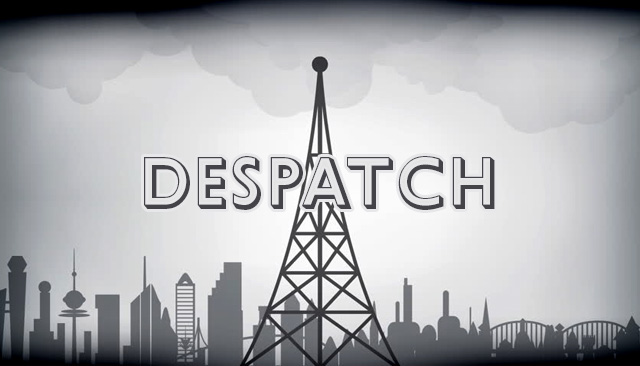The Senate Economics References Committee held public hearings on July 2018 as part of its inquiry into the financial and tax practices of for-profit aged care providers. A central area of focus for the senators is the use of any tax avoidance or aggressive tax minimisation strategies utilised by participants.
During these public hearings, Lendlease’s Australian tax payments was noted. Moreover, it was submitted to the Committee that in the preparation and presentation of its published accounts, Lendlease had chosen to ignore an important tax rule which prevents taxpayers from both claiming a deduction for an amount, and including that amount in the cost base of an asset.
The purpose of this response is to explain these arrangements for the purpose of Lendlease addressing these claims and to specifically respond to a question by Senator Rachel Siewart to witness Michael West.
The Senate was also told the Australian Tax Office is investigating the arrangements. To date, the public response of Lendlease has been to respond to questions for this story where the claims were first publicly aired:
While providing a statement, the company did not address the specific questions.
We draw the Committee’s attention has been drawn to Lendlease’s commitment to honesty, transparency, and an exceptional level of corporate governance. In its 2017 Governance Report Lendlease notes:
Commitment to Governance:
This statement sets out the principle features of Lendlease’s corporate governance framework and main governance practices.
Lendlease is committed to exceptional corporate governance policies and practices which are fundamental to the long term success and prosperity of Lendlease and its subsidiaries (the Group). Lendlease continually reviews its governance practices to address its obligations as a responsible corporate entity.
Lendlease’s 2017 Tax Report explains Lendlease’s approach to tax governance:
Tax strategy and governance:
Lendlease is committed to strong corporate governance policies and practices which are fundamental to the long term success and prosperity of Lendlease.
Lendlease’s Tax Governance Framework has been endorsed by the Lendlease Board and sets out our approach to managing tax risk globally. The framework is supported by detailed tax focused internal controls and group and regional operating policies and procedures.
The Framework includes Lendlease’s Global Tax Policy which underpins our approach to tax. Under the Policy, Lendlease seeks to:
• Comply with the relevant tax laws of all jurisdictions where we conduct business;
• Not participate in tax evasion or aggressive tax planning;
• Not provide tax advice to third parties;
• Protect the reputation of Lendlease at all times; and
• Establish and maintain open and respectful relationships with tax authorities in all countries in which we operate.
The Lendlease Risk Management and Audit Committee has oversight of global tax strategy and a clearly defined reporting hierarchy exists through which risks are escalated through the organisation.
Lendlease manages its tax affairs on a ‘no surprises’ basis and is committed to paying the correct amount of tax in all jurisdictions in which we operate. Lendlease seeks to assess the tax implications of all transactions before committing to the transaction and ensures that adequate processes are in place to meet all on-going tax and compliance obligations that arise from our operations.
A primary focus of this approach is to seek to minimise the risk of a sustainable different view arising between Lendlease and revenue authorities which might attract additional taxation, penalties and costs associated with any resulting dispute which might arise.
This is achieved through open engagement with revenue authorities, engagement of reputable tax advisers who provide a high level of opinion and strong internal controls to identify tax risk.
The Committee is aware that Lendlease has not paid any Australian tax for several years, despite conducting a profitable business. And from submissions made to the Committee as part of the Inquiry, the Committee is aware that Lendlease has obtained large taxation deductions by converting contractual arrangements with residents in its retirement villages from leases to loans.
Lendlease has not made public the total deductions claimed from this procedure.
There is a tax rule (s110-45(2)) which the Committee is advised makes clear that taxpayers are not able to include amounts as part of the cost base of an asset to the extent those amounts are tax deductible. This particular tax rule reflects the principle that an item should be either deductible for income tax purposes or included in the capital gains tax base of an asset, but not both.
Lendlease is also yet to make public if, in preparing its published financial reports over the last four years, it has determined that this important rule of Australia’s tax law does not apply to Lendlease.
If Lendlease has prepared its financial reports on the basis that the tax rule does not apply, it is yet to clarify why this rule does not apply.
In its brochure Guide to Lendlease Retirement Living, Lendlease explains that it gives ‘Simple, Honest Answers’ to its frequently asked questions.
Public support is vital so this website can continue to fund investigations and publish stories which speak truth to power. Please subscribe for the free newsletter, share stories on social media and, if you can afford it, tip in $5 a month.
Michael West established Michael West Media in 2016 to focus on journalism of high public interest, particularly the rising power of corporations over democracy. West was formerly a journalist and editor with Fairfax newspapers, a columnist for News Corp and even, once, a stockbroker.

